Filter by

Cinema, democracy and perfectionism
This book engages in a critical encounter with the work of Stanley Cavell on cinema, focusing skeptical attention on the claims made for the contribution of cinema to the ethical character of democratic life. In much of Cavell's writing on film he seeks to show us that the protagonists of the films he terms "remarriage comedies" live a form of perfectionism that he upholds as desirable for cont…
- Edition
- -
- ISBN/ISSN
- 9781784997359
- Collation
- -
- Series Title
- -
- Call Number
- -
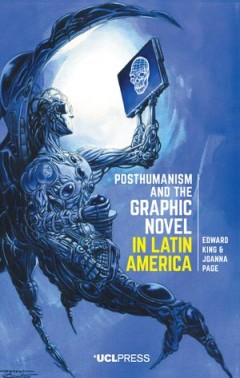
Posthumanism and the Graphic Novel in Latin America
Latin America is experiencing a boom in graphic novels that are highly innovative in their conceptual play and their reworking of the medium. Inventive artwork and sophisticated scripts have combined to satisfy the demand of a growing readership, both at home and abroad. Posthumanism and the Graphic Novel in Latin America, which is the first book-length study of the topic, argues that the graph…
- Edition
- -
- ISBN/ISSN
- 9781911576501
- Collation
- -
- Series Title
- -
- Call Number
- -

Happiness and Utility
Happiness and Utility brings together experts on utilitarianism to explore the concept of happiness within the utilitarian tradition, situating it in earlier eighteenth-century thinkers and working through some of its developments at the end of the nineteenth and beginning of the twentieth centuries. Drawing on a range of philosophical and historical approaches to the study of the central idea …
- Edition
- -
- ISBN/ISSN
- 9781787350489
- Collation
- -
- Series Title
- -
- Call Number
- -

Animal (De) Liberation: Should The Consumption Of Animal Products Be Banned?
In this book, Jan Deckers addresses the most crucial question that people must deliberate in relation to how we should treat other animals: whether we should eat animal products. Many people object to the consumption of animal products from the conviction that it inflicts pain, suffering, and death upon animals. This book argues that a convincing ethical theory cannot be based on these importan…
- Edition
- -
- ISBN/ISSN
- 9781909188839
- Collation
- -
- Series Title
- -
- Call Number
- -
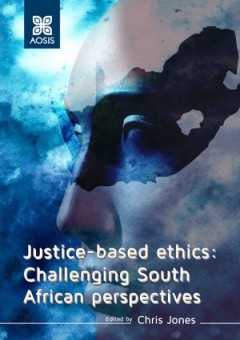
Justice-based Ethics
The book reflects academically on important and relevant ethical fields from a multidimensional South African context. The book challenges conventional borders from different ethical, theological, philosophical, economic and cultural perspectives with insight and expertise and seeks to add academic-ethical value, locally and globally, with its different points of departure deeply embedded in ju…
- Edition
- -
- ISBN/ISSN
- 9781928396710
- Collation
- -
- Series Title
- -
- Call Number
- -
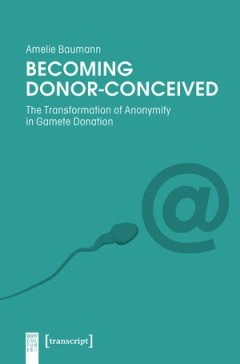
Becoming Donor-conceived: The Transformation Of Anonymity In Gamete Donation
While it has been argued that anonymity in gamete donation has been brought to an end by legal changes and technological developments, Amelie Baumann suggests that this is in fact still in transformation. By focusing on the narratives of those who were conceived with anonymously donated gametes in the UK and Germany, she examines this transformative process and the role which donor-conceived pe…
- Edition
- -
- ISBN/ISSN
- 9783839457313
- Collation
- -
- Series Title
- -
- Call Number
- -
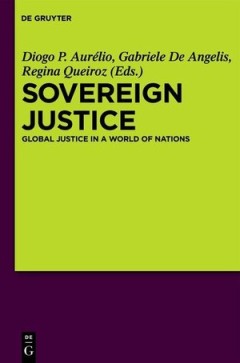
Sovereign Justice: Global Justice In A World Of Nations
Over the past years global justice has established itself as one of the new and most promising frontiers of political theory. Sovereign Justice collects valuable contributions from scholars of both continental and analytic tradition, and aims to investigate into the relationship between global justice and the nation state. It deals with the moral relevance of national boundaries and cosmopolita…
- Edition
- -
- ISBN/ISSN
- 9783110245738
- Collation
- -
- Series Title
- -
- Call Number
- -

Cosmopolitan Responsibility
The world we live in is unjust. Preventable deprivation and suffering shape the lives of many people, while others enjoy advantages and privileges aplenty. Cosmopolitan responsibility addresses the moral responsibilities of privileged individuals to take action in the face of global structural injustice. Individuals are called upon to complement institutional efforts to respond to global challe…
- Edition
- -
- ISBN/ISSN
- 9783110600780
- Collation
- -
- Series Title
- -
- Call Number
- -
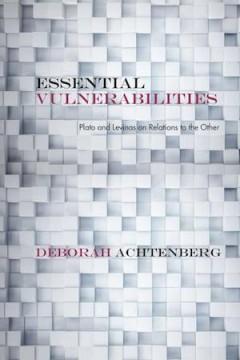
Essential Vulnerabilities: Plato And Levinas On Relations To The Other
In Essential Vulnerabilities, Deborah Achtenberg contests Emmanuel Levinas's idea that Plato is a philosopher of freedom for whom thought is a return to the self. Instead, Plato, like Levinas, is a philosopher of the other. Nonetheless, Achtenberg argues, Plato and Levinas are different. Though they share the view that human beings are essentially vulnerable and essentially in relation to other…
- Edition
- -
- ISBN/ISSN
- 9780810129948
- Collation
- -
- Series Title
- -
- Call Number
- -
 Computer Science, Information & General Works
Computer Science, Information & General Works  Philosophy & Psychology
Philosophy & Psychology  Religion
Religion  Social Sciences
Social Sciences  Language
Language  Pure Science
Pure Science  Applied Sciences
Applied Sciences  Art & Recreation
Art & Recreation  Literature
Literature  History & Geography
History & Geography